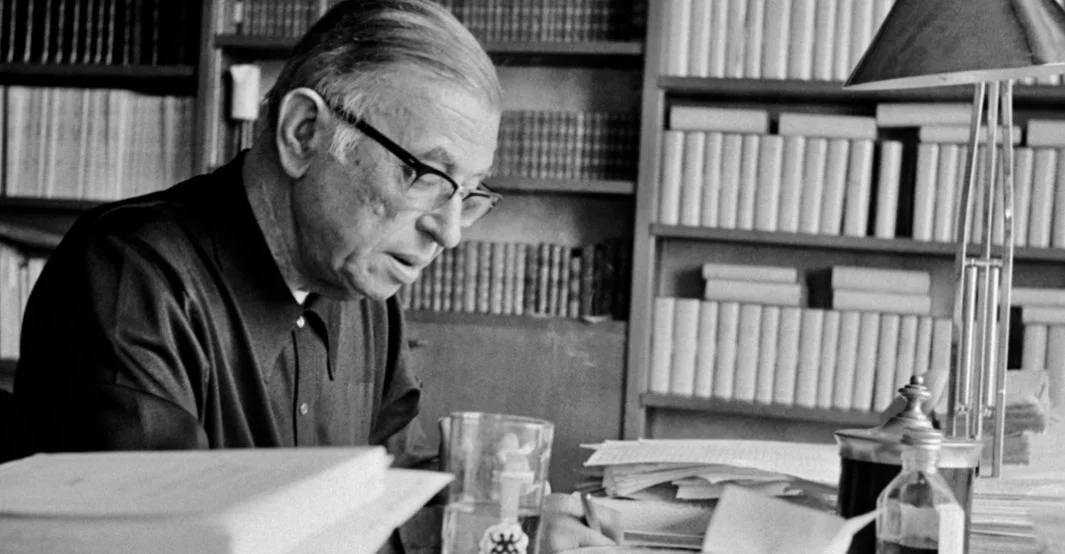Why Living Authentically Means You Cannot Have Self-Identity
When is human existence only authentic? An authentic life, contrary to popular belief, does not entail the following of the ‘true self’, nor is it equivalent to living with mere freedom of choice.
Existence Precedes Essence & The Project of Bad Faith
Bad faith, as Sartre characterizes, is denying one’s authentic self and the freedom one possesses. The notion of ‘project’ is when the person sets self-identity as a task, thereby defining projects for oneself to specify how one delineates the self. For instance : Sartre observes an exaggeration of waiter-hood by a waiter who tells himself that waiting tables is his destiny, and suggests that he is merely deceiving himself into being one, all the while denying his freedom (and at length his humanity) by conforming to social pressures or reproaching people for his occupation and actions. We must act in a manner that does not deny we are free, or we fail to transcend and act in accordance with what the existentialists deem the highest good. “It is not by turning back upon himself” Sartre states, “but always by seeking, beyond himself, an aim which is one of liberation or of some particular realisation, that man can realise himself as truly human”. Transcending ourselves and reaching for a conscious project is infinitely better than living in bad faith.
Man’s freedom is absolute, and Sartre illustrates this in the notion that existence precedes essence : we come into existence before we mould our purpose or essence and define ourselves ; the act of ‘choosing’ and self-determination stems from existence as an act. To exist is distinct from being and being present. As Sartre demonstrated, stones exist ; however, they cannot exist on their own without the activity of an external consciousness – an awareness of objects – which brings their being into existence. In this sense, existence is not a condition but an action and ascension from potentiality to actuality. Man’s absolute freedom can be corroborated by his potentiality of “being what it is not and not being what it is”. As existence is defined as an action and process, in order to exist, the self should be perpetually changing, developing and one should always be differentiating between things to become by examining the possibilities of the new existent resulting from past choices. The self is one that is continuously evolving and is never complete, but a developmental process formed through free will, towards an ideal realisation of the self.
The Authentic Life
The authentic life, which existentialists view as the highest good, is a means of freeing oneself from projects of self-deception, for example bad faith. Sartre elucidates that to live authentically is to embrace our freedom of choice and that freedom and responsibility are interconnected. “Man is condemned to be free; because once thrown into the world, he is responsible for everything he does.” We are condemned to the realities of our freedom, which are the repercussions of the choices we are responsible for. In response to a pupil torn between choosing to avenge his brother by joining French forces and to take vital care of his mother, Sartre interjects – “You are free, therefore choose ; that is to say, invent.” To lead a life of authenticity, one can only make choices (or invent values) that are authentically one’s own because “the foundation of all values” is freedom itself. If freedom is all that makes up the fundamentals of values, we must perpetually invent and act with responsibility in situations, without indulging in predetermined ethical systems, utilising what Sartre deems an “ethic of action and self-commitment”. Freedom in Sartre’s perspective is to invent, reinvent, and define, not simply employing it inside a pre-established model ; and to live with authenticity requires not only reinventions of the self and values, but also the idea of a prosperous life.
Following our ‘True Self’ is Not Living Authentically
Some may feel that living autonomously, wielding the freedom of choice and being true to oneself is the equivalent to an authentic life. Autonomy can be characterised as freedom from external agents and becoming the master of ourselves by acting on our own choices – but both are operating within given choices, systems, and upon the notion of a true self (as many autonomy theorists, psychologists and the general public are of the belief that a core, true self exists within). However, as can be seen from the aforementioned, authenticity is an exponentially more radical notion. The conception of a true self, people define as possessing a core in which it is either fundamentally morally good or morally bad ; people often view it as an entity that encourages one to act accordingly, and acting immorally is a deviation from the goodness of the true self. Nevertheless, authenticity does not allow room for any predefined or predetermined set of moral values, and rejects the concept of an essential, fixed self. To live an authentic life, one must trail after free will while inventing at will, and not stare into an already existing core in an attempt to grasp and examine it.
As Sartre said: “Man is nothing else but that which he makes of himself.” One is not created by the self, but one must define oneself ; and to perpetually reinvent the self is, in the eyes of the existentialists, to truly live well, and freely.”
Sources:
https://iep.utm.edu/sartre-ex/#SH4a
https://researcherslinks.com/current-issues/Can-Existentialists-be-Happy/9/26/2150/html


